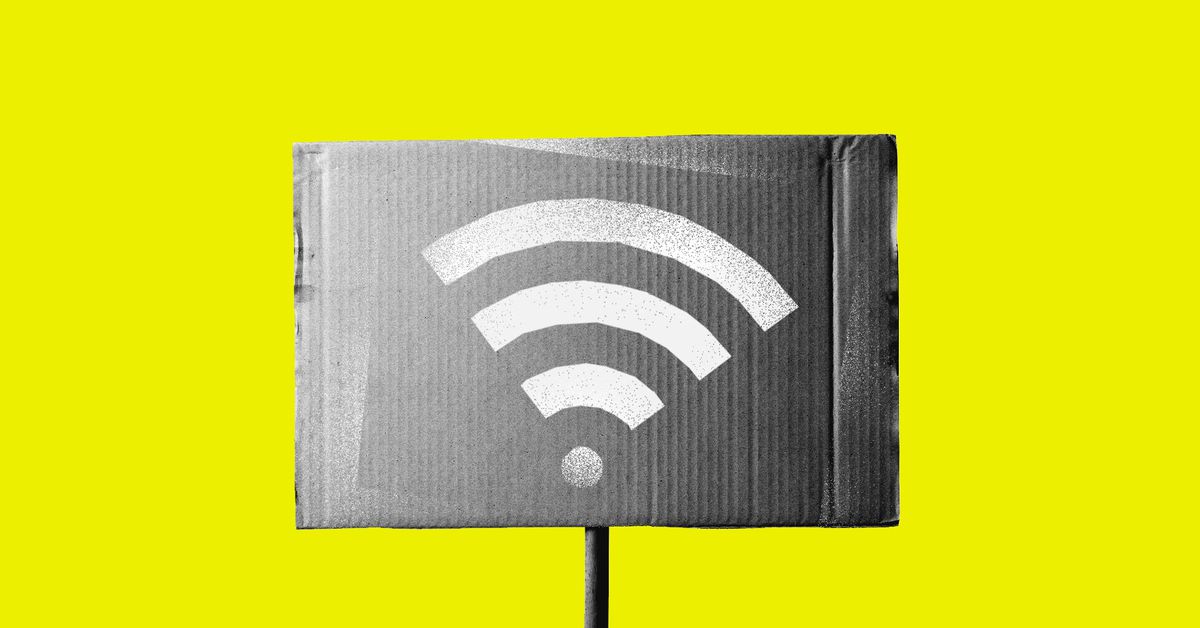A federal appeals court has agreed to halt the reinstatement of net neutrality rules until August 5th, while the court considers whether more permanent action is justified.
It’s the latest setback in a long back and forth on net neutrality — the principle that internet service providers (ISPs) should not be able to block or throttle internet traffic in a discriminatory manner.
The current FCC, which has three Democratic and two Republican commissioners, voted in April to bring back net neutrality. The 3–2 vote was divided along party lines.
Broadband providers have since challenged the FCC’s action, which is potentially more vulnerable after the Supreme Court’s recent decision to strike down Chevron deference — a legal doctrine that instructed courts to defer to an agency’s expert decisions except in a very narrow range of circumstances.
Bloomberg Intelligence analyst Matt Schettenhelm said in a report prior to the court’s ruling that he doesn’t expect the FCC to prevail in court, in large part due to the demise of Chevron.
I’m more of a free market guy than most of y’all, but the internet should clearly be treated as a utility.
Thats what we were pushing for back in 2015
Since you brought it up, why are you a free market person?
Yeah random guy on the internet, justify yourself
That’s not what I asked them to do. I disagree with free markets, but that doesn’t mean I’m resistant to learning from other people’s perspectives.
I didn’t mean you were, that just sounded strangely judgemental for a question asked to a random person on the internet who you probably never saw before and will most likely ignore it
I get it, but maybe they won’t. They definitely will ignore my question if I never ask!
I feel like everyone within developed countries should offer everyone a bare minimum free internet access. Like, even if it’s as slow as dialup, at least it would still be access.
Then, if you want high speed internet, which I’m sure most people would want, then you pay monthly for that of course.
But this whole thing they’re doing now, where they can throttle or even block sites at their own discretion for paying customers, well that’s just totally back-asswards…
From the outside it really seems that a large amount of the USA administration is actively working against the USA’s interests. Which sounds weird.
The GOP is doing everything it can to fuck up our government in favor of corporate and foreign interests: They are literally selling America out for a quick buck while all their rich asshole friends enjoy even more obscene wealth.
It’s seems that way from the inside, too.
it literally costs nothing to ignore the supreme court and lower courts people.
WHAT THE FUCK!
you know… I don’t think I could pick many better ways to remind a population that they are nothing more than chattel.
superior quality rulling there, supreme court.
/s on that last sentence, cuz you never know.
This is the best summary I could come up with:
The current FCC, which has three Democratic and two Republican commissioners, voted in April to bring back net neutrality.
Broadband providers have since challenged the FCC’s action, which is potentially more vulnerable after the Supreme Court’s recent decision to strike down Chevron deference — a legal doctrine that instructed courts to defer to an agency’s expert decisions except in a very narrow range of circumstances.
Bloomberg Intelligence analyst Matt Schettenhelm said in a report prior to the court’s ruling that he doesn’t expect the FCC to prevail in court, in large part due to the demise of Chevron.
A panel of judges for the Sixth Circuit Court of Appeals said in an order that a temporary “administrative stay is warranted” while it considers the merits of the broadband providers’ request for a permanent stay.
In the meantime, the court requested the parties provide additional briefs about the application of National Cable & Telecommunications Association v. Brand X Internet Services to this lawsuit.
Brand X is a 2005 case in which the Supreme Court ruled that the FCC had lawfully interpreted the Communications Act to exclude cable broadband providers from the definition of “telecommunications services.” At the time, SCOTUS said the lower court should have followed Chevron and deferred to the agency’s interpretation.
The original article contains 341 words, the summary contains 211 words. Saved 38%. I’m a bot and I’m open source!
Somebody needs to put Sarah McLachlan’s Angel over the American flag and start posting it every time Anti-Chevron is used to break the government.




